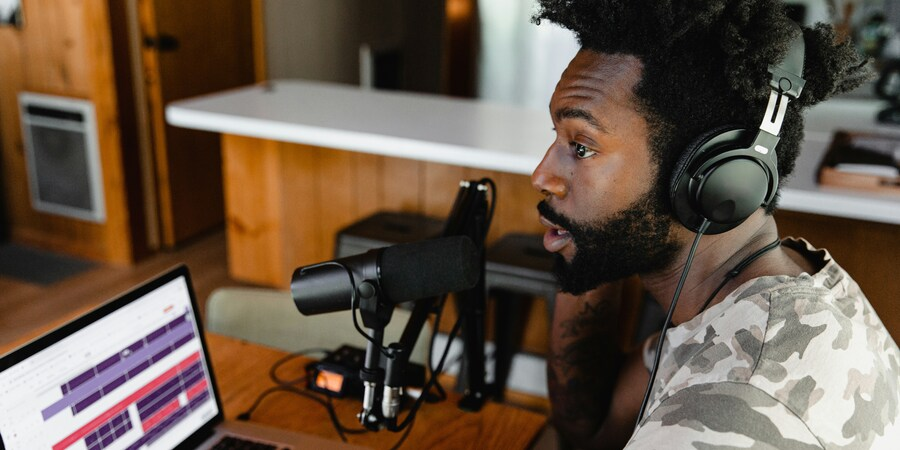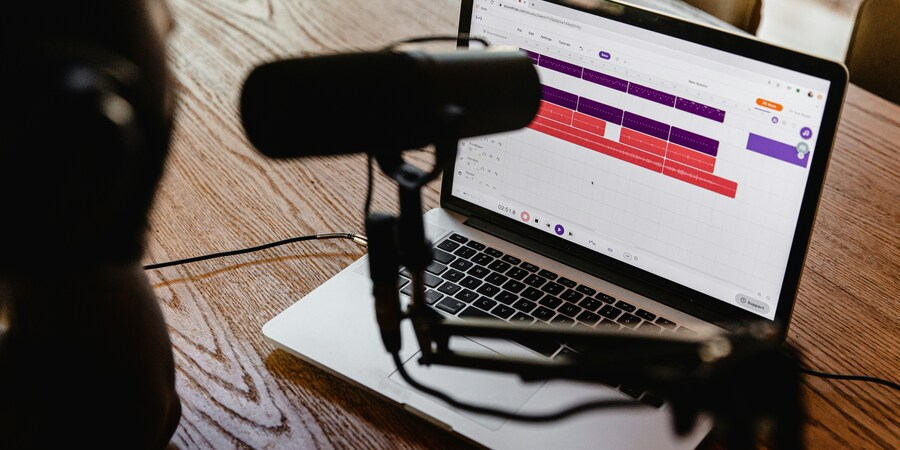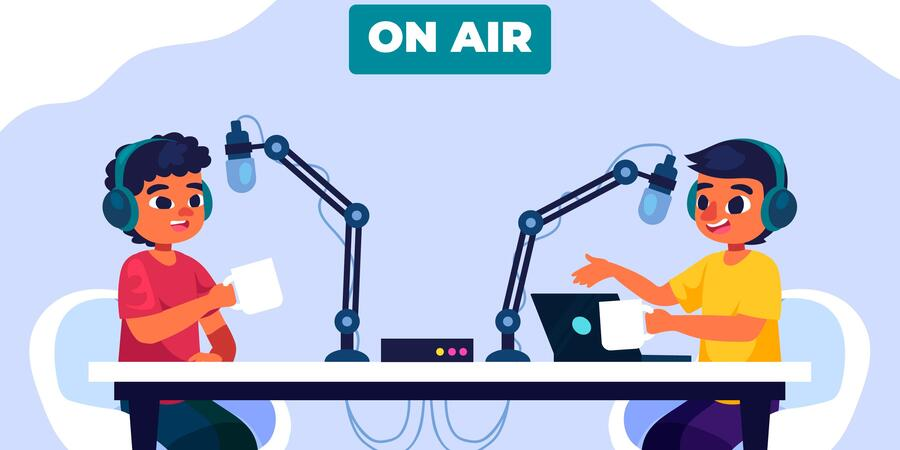Podcasting has evolved from a pastime to a profitable business prospect. Podcasting, with its secure RSS feeds, special audio series, and customized content, may link you with premium subscribers or even businesses seeking specific solutions.
Today, monetization encompasses not only advertising but also innovative solutions such as custom subscription models, training programs, and staff onboarding. The answer is in understanding how to personalize your podcast to a specific audience, generating a consistent income stream in the process.
1.2. Strategies for Podcast Monetization

If you want to generate money with your podcast, begin by generating unique material for your subscribers. You may use a private RSS feed to offer supplementary content, special episodes, or even whole audio courses. Platforms like Transistor and Podbean make this process easier by providing tools for creating secure feeds that provide additional value to paid listeners.
Another possibility is to work with corporations on sponsored programs. Businesses are constantly looking for new ways to engage with their consumers, and your podcast may help them reach that audience. You may charge for providing meaningful, targeted episodes by concentrating on branded material or themes relevant to their requirements, such as employee training or client onboarding. It’s all about knowing the company’s goals and developing a strategy that matches with them.
Finally, consider your podcast an instructional tool. You may educate personnel, create onboarding procedures, and provide online courses to corporate clients, educators, and membership groups. Platforms such as Kajabi allow you to mix private podcasts with statistics to monitor how effectively your content engages listeners.
1.3. Create a private podcast

Making money from podcasts is a fantastic possibility, especially if you’re seeking methods to turn your passion into money. Private podcasts are becoming increasingly popular among artists who wish to keep unique content for their subscribers. By providing a unique RSS feed, you may restrict access to only those who subscribe, ensuring that your material is not publicly available or discoverable by everyone.
To get started, select the best podcast hosting service for uploading your audio content. These services allow you to generate episodes, so your material is handled properly. When your episodes are complete, you may invite subscribers via several ways, like email, CSV uploads, and invite URLs. I’ve tried these approaches personally, and they work great for attracting listeners who are interested in your material.
Subscribers may receive and download episodes using popular programs such as Apple Podcasts, Overcast, and Pocket Casts. These applications provide a terrific user experience, allowing your audience to listen to episodes on their devices.
1.4. Examples of private podcasts

Starting a podcast is an exciting way to connect with your audience; with the correct technique, you can turn it into a profitable endeavor. Private podcasts provide a unique option for artists to monetize their material by making it available only to a restricted group of subscribers. This technique enables you to develop targeted content, such as staff training, onboarding materials, or statements from leaders that speak to a specific audience.
In my experience, producing a private podcast for a select number of listeners leads to greater engagement and loyal subscribers. You may invite listeners to your show by email, CSV uploads, or invitation URLs. Many artists, including writers and course makers, utilize this approach to provide audiobooks and audio courses to their audience, which provides more value than a standard podcast.
Private podcasts are a great method for corporations, institutions, and membership sites to distribute focused and unique material.
2. How do you record audio for your private podcast feed?

Podcasting is an excellent method to earn money, especially if you want to share exclusive information with a targeted audience. Creating private podcasts is an efficient approach to accomplishing this. These podcasts are not available to the general public but exclusively to subscribers who have a unique RSS feed. As a creator, you can keep your audience interested by providing tailored content such as staff training, onboarding materials, or special messages from leaders.
Many authors and course producers use private podcasts to provide audiobooks or audio courses directly to their students. The method is simple: you may invite subscribers by email, CSV uploads, or invite URLs. Once your material is complete, it is uploaded to hosting providers, and you may share it with listeners, who can easily get notifications via podcast app or email.
Platforms like Transistor make it simple to put up your shows, giving you complete control over the whole process, from audio uploading to subscription management
3. How do you share the private podcast with your employees or members?

Starting a podcast may be a fun and profitable way to connect with an audience, and it becomes even better when you start a private podcast. Unlike public broadcasts, a private podcast allows you to share exclusive content with only your subscribers. This strategy is ideal for companies that wish to provide specialized material, such as staff training, onboarding, or messages from leaders, without making it available to the public.
Many authors and course developers utilize private podcasts to share audiobooks or audio lectures with their students, offering a more customized experience. Using hosting providers allows you to simply upload audio content, set up feeds, and invite subscribers by email, CSV uploads, or invite links.
This guarantees that only those you choose get access to your special episodes. What is the best part? Your subscribers may be notified when new episodes are available, keeping them interested and guaranteeing steady growth. Setting up and managing a private podcast is much easier with platforms like Transistor, allowing you to focus more on providing amazing content that generates cash.
4. Which podcast apps support private podcasts?

To generate money from your podcast, you must first provide a compelling and exclusive experience for your listeners. A private podcast allows you to do exactly that. Unlike public podcasts, a private podcast is exclusively visible to your subscribers, making it ideal for providing tailored material. Whether you’re giving staff training, onboarding, or leadership communications, you can guarantee that your audience receives relevant, customized material.
The setup is straightforward. Using hosting providers allows you to simply upload audio and control feeds. Once your episodes have been released, you may notify your subscribers via email, CSV uploads, or invite links. This offers you control over who may view your stuff.
In my view, the actual secret to monetizing a private podcast is to provide something genuinely unique and useful that your audience cannot obtain anywhere else.
5. How to Create a Private Podcast for Your Company or Membership?

Making money from podcasts is getting increasingly popular, and one of the most effective methods to do so is to provide private podcasts. These podcasts are intended for a specialized audience, such as organizations or communities seeking unique material. You may use systems like Transistor, Podbean, or Resonate to produce a private podcast that offers important and tailored information, such as staff training or onboarding materials.
In my experience, creating a private podcast for businesses or education opens up a great way to generate revenue. Companies like Stripe, IBM, and DHL already use private podcasts for secure communication and internal training, demonstrating the potential for monetizing your podcast.
